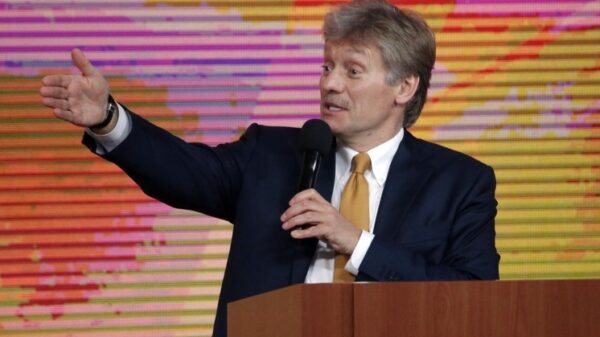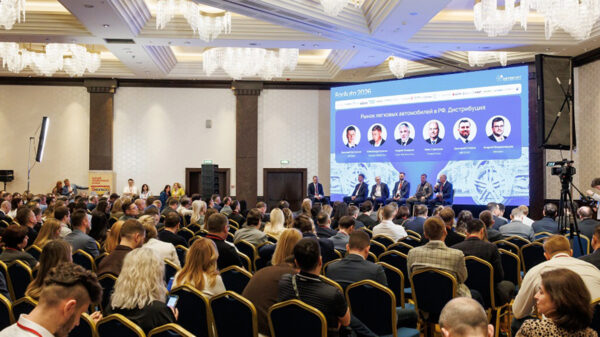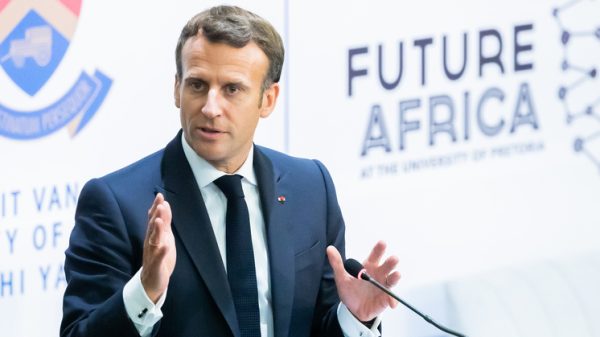 Jeremy Hunt has ruled out any relief for taxpayers ahead of the election Photo: REUTERS/Toby Melville
Jeremy Hunt has ruled out any relief for taxpayers ahead of the election Photo: REUTERS/Toby Melville
The tax burden is rising. According to the Institute for Fiscal Studies, this parliament is expected to rise by more than any other since the Second World War.
The tax burden will rise from 33% of GDP in 2019 to 37% by 2019 . Next year, the IFS says, it will be the biggest jump in parliament since records began, and likely the biggest outside wartime.
Families and businesses will pay More than £100bn extra in taxes next year compared to the last election, the think tank said.
The increase in the tax burden is one and a half times higher than the increase observed during Tony Blair's first presidential term, which lasted in the previous post-war period. record.
This is almost 13 times the jump seen during the first term of the coalition government, which came to power after the worst financial crisis since the Great Depression.
The IFS said The huge jump was not the result of pandemic spending, but the result of political choices.
Changes in each government's tax receipts
The think tank's Ben Zaranko said: «Most of this is not a direct consequence of the pandemic.»
«Rather, it reflects decisions to increase government spending, driven in part by demographic changes , pressure on the health system and some easing of austerity measures.»
«It is likely that this Parliament will mark a decisive and permanent transition to a higher-tax economy.»
Compared to the last election, the tax rise is equivalent to an extra £3,500 a year for each household.
The analysis has drawn immediate pressure. within the Conservative Party, the Prime Minister and Chancellor Jeremy Hunt should cut taxes and cut spending.
Sir John Redwood MP, who was Thatcher's chief political adviser, called on the prime minister to «set out the main case» for tax cuts at the Conservative Party conference, which starts on Sunday in Manchester, and then formally declare them «the first day of return». . in Parliament.»
Sir Jacob Rees-Mogg, the former business secretary, said: «That's why it's so important to cut spending and implement supply-side reforms to get the economy going first.»
< p>“Unfortunately, the coalition ring has fenced off too many areas, so the cuts have been reduced only slightly, causing GDP costs to rise, which then have to be paid for by higher taxes.”
 Former Prime Minister Liz Truss blamed high taxes for the stagnating British economy. Photo: Stefan Rousseau/PA Wire
Former Prime Minister Liz Truss blamed high taxes for the stagnating British economy. Photo: Stefan Rousseau/PA Wire
Former Prime Minister Liz Truss told the Telegraph: “This unprecedentedly high tax burden is one of the reasons why the British economy is stagnating and why we need tax cuts to help the UK grow again.”
Taxes have changed. has risen sharply since the last election as a result of a secret raid on frozen thresholds and new business levies.
Rishi Sunak first announced a freeze on income tax thresholds as Chancellor in 2021 and has since extended the policy until 2028 of the year. .
As a result, HMRC forecasts that almost 1.5 million people will fall into the higher 40p and 45p tax brackets over the next five years.
Mr Hunt also raised the corporation tax rate from 19% to 25% from April, despite widespread criticism from business leaders.
In last year's autumn statement he froze the thresholds at which employers must pay national insurance until 2027–2028. The OBR estimates this will cost businesses an extra £5.7 billion by the policy's final year.
A windfall tax on the energy industry was also introduced in 2022, while Mr Sunak was chancellor, raising taxes on oil and gas production from 40% to 75%. It is expected to last until 2028.
Higher inflation means various tax rises, whether immediate or sneaky, have brought in far more money than expected, according to the IFS.
p>Mr Zaranko said: “Instead of reversing the tax increase or partially reversing it, it just allows them to collect much more than they originally thought.”
The IFS said decisions to raise taxes were partly driven by an aging population, efforts to tackle NHS waiting lists and the reversal of some austerity measures.
Even if the chancellor succumbs to pressure to cut taxes, Mr Zaranko said “it looks set to be the biggest tax-raising parliament since at least the Second World War.”
p>
Mr. Hunt has already announced tax cuts. “virtually impossible.”
Douglas McWilliams, an economist who co-chairs the Economic Growth Commission and previously advised George Osborne, said, however, that pre-election tax cuts would be “a bit like a deathbed repentance; not entirely convincing.»
Mr McWilliams said Boris Johnson's «fiscal incontinence» and Sunak's reluctance to «get to grips with the civil service» had led to «very high government spending».
p>He said «ineffectiveness of the civil service» was the biggest problem. reason for the change, adding: «If you have high costs, you get high taxes.»
Former Bank of England deputy governor Sir Charlie Bean said there was an expectation that «the state would step in.» as a result of the financial crisis, pandemic and energy crisis.
He said: “One of the consequences if you decide to make the government the insurer of last resort is that it will increase costs and increase the tax burden. And since the government has intervened frequently lately, it is expected to do so again when another major shock hits and becomes harder to resist.»
0809 Productivity growth has stalled
Sir John Redwood said the government » must cut taxes to achieve growth, and it must begin to correct the collapse of public sector productivity, which is one of the main factors behind all of this.»
He added: “The way to afford more doctors, nurses and teachers, which we definitely need, is to grow the economy so that you get more tax revenue through lower tax rates. This is what they must do.”
A Treasury spokesman said: “Tough decisions must be made to restore public finances in the face of the twin shocks of the pandemic and Putin's illegal actions.” Invading Ukraine, the latest data shows our tax-to-GDP ratio will remain lower than any major European economy.
“Lowering inflation is the most effective tax cut we can deliver right now, here's why We are sticking to our plan to halve it, rather than making the situation worse by borrowing money to fund tax cuts.
“We have also taken 3 million people off tax completely since 2010 by raising individual thresholds, and the Chancellor said he wanted to further reduce the tax burden, but made it clear that sound money must come first.”


























































Свежие комментарии